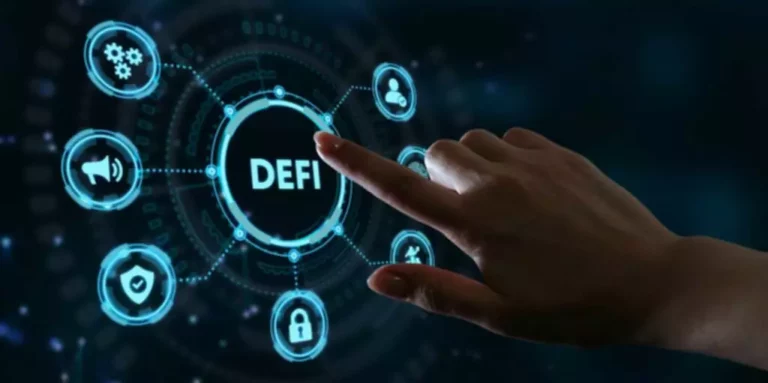Content
Real estate ownership can be Yield Farming tokenized and sold like a real estate investment trust (REIT). Smart contracts can be written for real estate transactions so they provide rental income or dividends to the holders. For example, Reinno provides real estate ownership tokenization which delivers passive income to the token holders. It eliminates credit risk by ensuring that when one party completes its duties that are written in the smart contract, the payment is done automatically. They can record the ownership and other aspects of digital copyright assets such as digital ID or fingerprints on the blockchain.
- In-game items are a critical component of most games, as they provide users with special powers or unique attributes.
- Automated Market Makers (AMMs) are an increasingly popular category of decentralized exchanges.
- In a real-world use case, property data is stored on a blockchain, creating a tamper-proof record.
- Smart contracts are one of the most disruptive blockchain applications transforming industries ranging from finance to logistics.
- The decentralized nature of smart contracts also opens up opportunities for peer-to-peer lending and decentralized autonomous organizations (DAOs), democratizing access to financial services.
Smart contracts are a transformative force
Users can then purchase energy resources using fiat or cryptocurrency with exchange rates determined by Chainlink-powered decentralized price feeds. https://www.xcritical.com/ Many utilities like the Internet, cable TV, and cloud hosting charge customers based on set pricing structures. However, when their services go down, sometimes causing large financial losses due to opportunity costs (e.g. exchanges experiencing downtime due to a cloud outage), no one is held accountable.
What are the key benefits of using smart contracts?
It is a certificate issuance and verification system that works on Ethereum smart contracts to cryptographically secure documents. In some parts of North America, blockchain smart contract the government has even permitted using smart contracts for digital agreements. For instance, according to CoinDesk, marriage and birth certificates in California can be issued through blockchain using smart contracts.

Smart Contract Use Case in Voting Systems
One of the best Smart contract use cases is boosting healthcare data security and interoperability. These contracts automate insurance claims, ensuring swift reimbursements for medical expenses. Efficiency rises, and trust grows among patients, providers, and insurers, nurturing patient-centric healthcare. Utilizing smart contracts for insurance and claims processing offers a variety of use cases for smart contracts, streamlining procedures, accelerating claims processing, and guaranteeing precise payouts according to predetermined conditions.
Decentralized finance (DeFi) applications are at the forefront of utilizing smart contracts to recreate traditional financial products. These applications facilitate complex financial processes, such as lending, borrowing, and trading, without the need for intermediaries. All transactions are executed automatically and transparently by smart contracts, enhancing the efficiency of financial services. These self-executing agreements, powered by blockchain technology, have the potential to revolutionize numerous industries by automating complex processes, reducing costs, and minimizing human error. In this blog, we will delve deeper into the top six real-world smart contracts use cases, exploring the exciting possibilities that lie ahead. While smart contract-enabled blockchain networks are inherently pseudonymous, there is strong demand for users to be able to prove their real-life identity as means of ensuring Sybil-resistance and/or granting clearance.
The price per item in the purchase order can be autonomously updated depending on the temperature, such as bananas with dynamic pricing based on weather conditions. Chainlink’s ability to create consistency around external data inputs creates consistency among business partners, reducing disagreements and reconciliation. Deutsche Telekom MMS, a subsidiary of Deutsche Telekom (Europe’s largest telecommunications provider) operates a Chainlink oracle node and provides financial market data to numerous leading DeFi applications. As the demand for universally connected smart contracts continues to grow, the revenue opportunities can increase, leading to additional infrastructure providers launching Chainlink nodes.
Plus, smart contracts can be used to verify and record the completion of training or certifications, maintaining a reliable, tamper-proof record. On the rental front, use cases of smart contracts extend to automating rent collection and maintenance requests and ensuring lease terms are adhered to. Additionally, they can enable crowdfunded real estate ventures, allowing multiple investors to collaboratively finance property projects and share in the returns.
They have modernized the signature process and helped companies avoid the costly overhead of obtaining a hand-written physical signature. With signatures being the most common way to authorize contracts, it’s a necessity that Chainlink oracles give smart contracts access to leading e-signature companies like DocuSign. Supply chains are increasingly making use of RFID (radio frequency identification) technology to track goods.

Smart contracts are typically immutable once deployed on a blockchain, meaning they cannot be modified. However, it is possible to create upgradeable smart contracts using certain design patterns. In each of these use cases, smart contracts can enable lenders and borrowers to interact directly, without the need for banks or other financial intermediaries. Supply chain management involves coordinating and managing the various activities involved in the production and delivery of goods and services.
Real estate and property management are huge and lucrative markets that involve many stakeholders and transactions. We will explore 7 smart contract use cases that can perform various functions, such as transferring value, verifying identity, enforcing rules, and triggering events without human intervention or intermediaries. Smart contracts can be useful to your business, we have created data-driven lists of vendors and development services for you to check out. If you’re a developer and want to quickly get your smart contract application connected to Chainlink oracles, visit the developer documentation and join the technical discussion in Discord. Another example is Get Protocol, a blockchain-based event ticketing solution that uses Chainlink VRF to randomly determine a digital waiting line for in-demand concerts and events. This provides users with an equal opportunity to obtain tickets, in a manner they can independently verify on-chain as unbiased.
This technology has immense potential to streamline any process that demands access to multiple databases and resource planning systems. Transparent on-chain inventory records allow just-in-time delivery and lean production based on smart contract logic rather than manual processes. As supply chains face increasing complexity, smart contracts are an important tool for end-to-end digitization. This helps attract new users to Web3 titles unlocking new models like interoperable metaverse economies. Through an immutable ledger, parties involved can track the entire transaction lifecycle, ensuring accountability and reducing the risk of fraud or disputes. This increased visibility also enables regulatory authorities to monitor transactions more efficiently, ultimately fostering a more streamlined and trustworthy global financial ecosystem.
In this section, we will delve into the most common use cases and examples of what smart contracts are used for, shedding light on the areas where they prove to be particularly beneficial. Currently, if a project is to be built and funding raised, this requires lots of paperwork and time — both increasingly valuable resources in a digitized world. However, using a smart contract for the same process is a matter of clicking a button and signing on to a wallet. A Solana smart contract, for example, stores details of the transaction in the ledger of every computer on the network — the information involved in the transaction can’t be altered by any party, not even the Solana Foundation itself. Currently, blockchains have issues with latency, as it takes time for a block of transactions to become a part of the ledger. Contracts are a fundamental part of business as they allow transactions to be performed as agreed upon, regardless of the industry.
Medication authenticity is ensured and the risk of counterfeit drugs is reduced by tracking prescriptions from manufacturer to patient. They are able to guarantee the integrity and transparency of the outcomes while safely recording trial data. Typically everyone can create a contract and upload this contract in a specific transaction on the blockchain. The contract is funded, and like in the traditional payment method, some APIs are made available to expose the contract so that it is enabled to perform transactions automatically according to a specific agreement.
An example of this in action is ETHA Lend, an on-chain yield optimizer that uses the Chainlink gas price oracle to help build and execute algorithmically optimized yield strategies for LPs. Smart contracts can also use this gas price oracle to create gas price financial products and other financial products designed for hedging against blockchain network congestion and high transaction costs. Coinfirm is one example of a blockchain analytics firm that is using Chainlink oracles to bring data from its Anti-Money Laundering (AML) solution on-chain. This provides a plug-and-play solution for users wanting to add compliance to any on-chain application through real-time verification by an oracle network. Additionally, CipherTrace launched DeFi compliance oracle service on Chainlink to enable DEXs and other DeFi applications to abide by Office of Foreign Assets Control (OFAC) sanctions requirements by providing source-signed compliance data on-chain. Dipole, a blockchain-based distributed energy trading market, plans to use Chainlink Price Feeds to enable the on-chain trading and valuation of energy assets.

